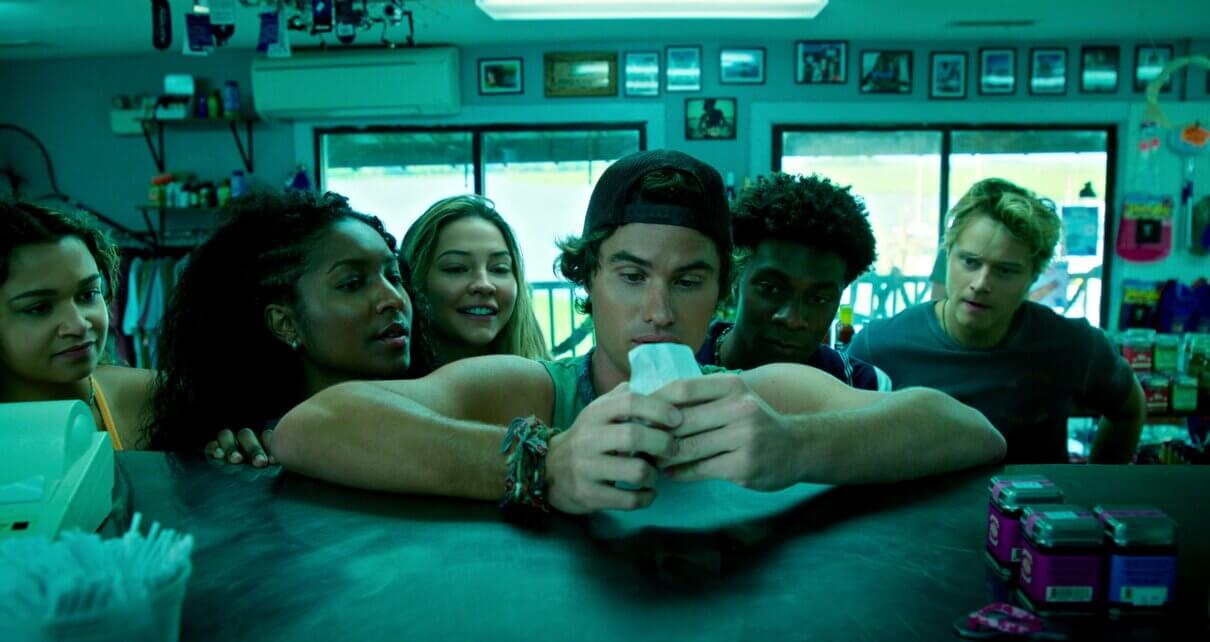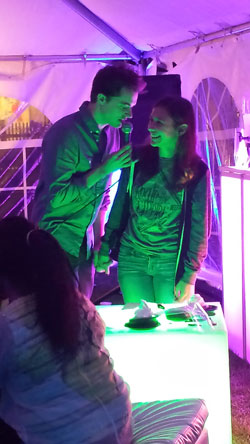“Outer Banks:” season four, part one was released on Oct. 10, on Netflix. Originally teased with clips on the actor’s Instagram stories and YouTube, the official trailer was released three weeks before its premiere date. In its first week on Netflix, the show had 15,500,000 watchers, placing it in the “Top 10” list for that week.
The last season ended with the Pogues being recognized for their treasure-hunting accomplishments. Considering that the Pogues can finally craft a new start for themselves, it would seem that they wouldn’t need the money, considering all the danger it may pose in this flash-forward moment.
This is true for a minute in the premiere, as we transition back to the present. They get a boat, JJ’s house back, and start to make a life for themselves. But, one storm, an overpriced house, zoning laws, and a bet, make them return to treasure hunting. Not including when they are also tempted by the curse of a supposed Blackbeard. All in all, they tend to get into more trouble than they bargained for in order to gain back the money that they lost.
The main themes of this season have to do with the transition from rich to poor. It’s interesting to see that we have come to define privilege and power with money. This is very much how Pope (Jonathan Daviss) feels when he finds out that the original money was stolen from his ancestor, who was a freed slave who was killed after went back to bury his still enslaved wife, who tried to escape. Part of the reason why he shares the money with his adopted family is so special because he gave up his academic future to help John B (Chase Stokes) find his dad through treasure hunting, which also came with them being hunted by Ward Cameron (Charles Esten). Ward is the father of Sarah Cameron (Madelyn Cline), John B’s love interest. The best part, amidst their struggles, they come to be the matriarch and patriarch of this season.
We see the story of Cleo (Carlacia Grant), who was introduced in season two and is Pope’s rock. She is crafting a new life with the family she comes to adopt since being rescued in season three. Along the way though, she loses the one person that was there for her all along, and we really get to see how money can corrupt, but money can also protect people and bring them together. The person she lost, Terrance, protects her after she is kidnapped, and we see how Cleo fights with the complicated person, who raised her, but also sold her out to get what he wanted financially.
There’s also the spoiler that JJ (Rudy Pankow) comes from old money, which is why he was contacted by the man terrified of the curse of Blackbeard because his ancestor killed him. That’s also why he thinks JJ making right by the curse will save the family. This cliffhanger is interesting because JJ is the one who blows most of the money and is obsessed with proving that he is not like his criminal father. But, in most conflicts, he puts the rest of the crew in danger. The audience sees JJ transition into a new identity, the same as his outcast Kook girlfriend, Kiara (Madison Bailey), and his Kook rival, Rafe (Drew Starkey). We see Rafe, trying to identify with hard-working, make something of himself, mentality of his dad, while also trying to make amends with the only family he has left. Part of his regression can be seen in how he cannot be honest with his friends about his Pogue girlfriend, Sofia (Fiona Palomo) as he enjoys the social luxuries and privileges it gives him. He’s determined to right his wrongs, held back by the past, but continues to sink deeper in his vow to his father for vengeance against the Pogues.
The part of this story that really sticks out to me is that it takes place on the Outer Banks, which is currently affected by Hurricane Milton and Helene. The class struggles in the show may very much be happening in real-time as the hurricanes make millions evacuate their homes. It also gives perspectives to college students who may be trying to find who they are in the midst of personal and physical changes. They are not purely one thing or another, although much of their identities started with what side of “The Cut” they were from. They show that growing up is hard, and is much more than the labels we project, whether it be class, social, generational, or psychological. The characters realize that they must consciously determine their place in the world.
Considering that the first season premiered during the COVID-19 shutdown, this series holds a special place for college kids also growing into their sense of adulthood and autonomy through a metaphorical sense of treasure, bandits, and star-crossed lovers. For sure, audiences will be back on their couches ready for part two, which premieres Nov. 7.




